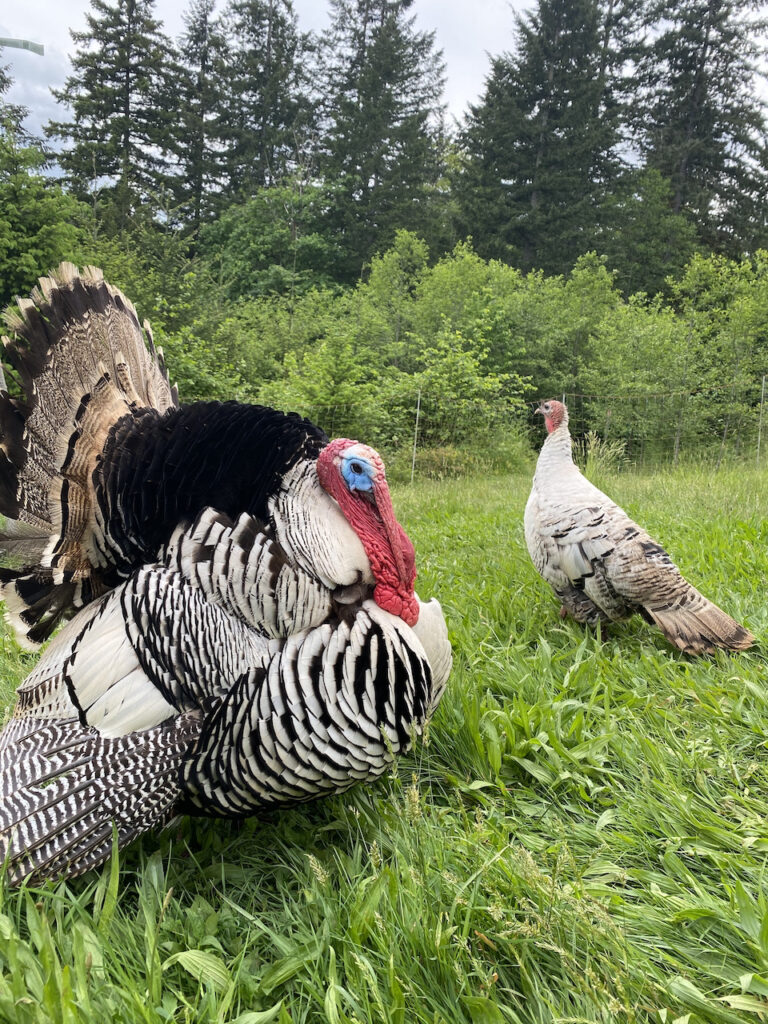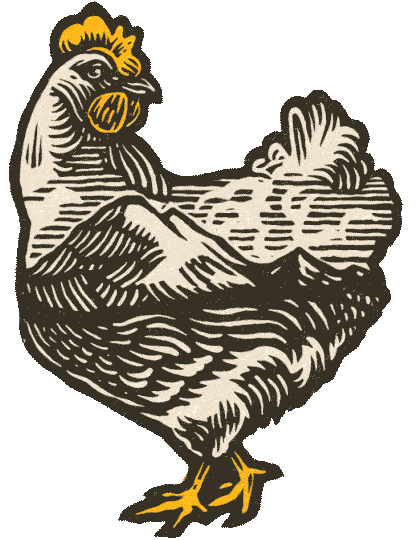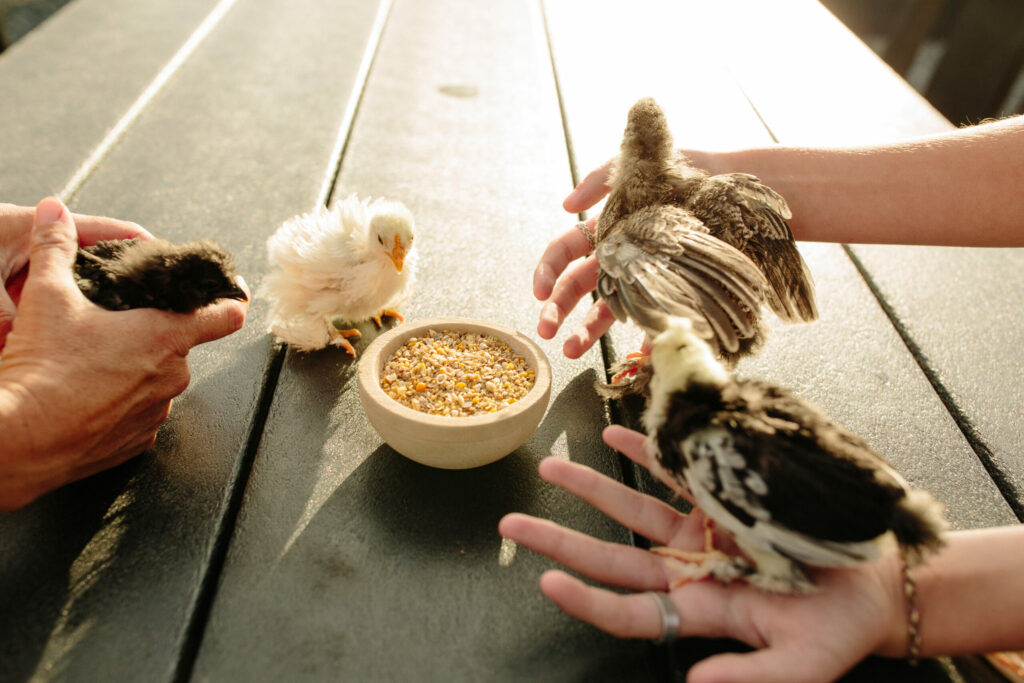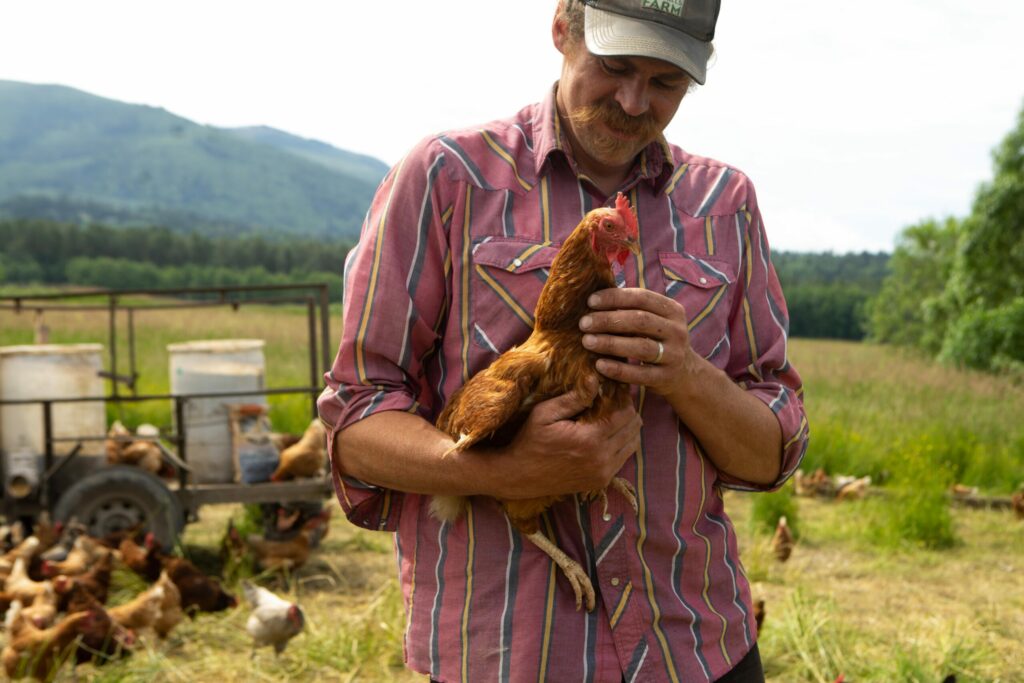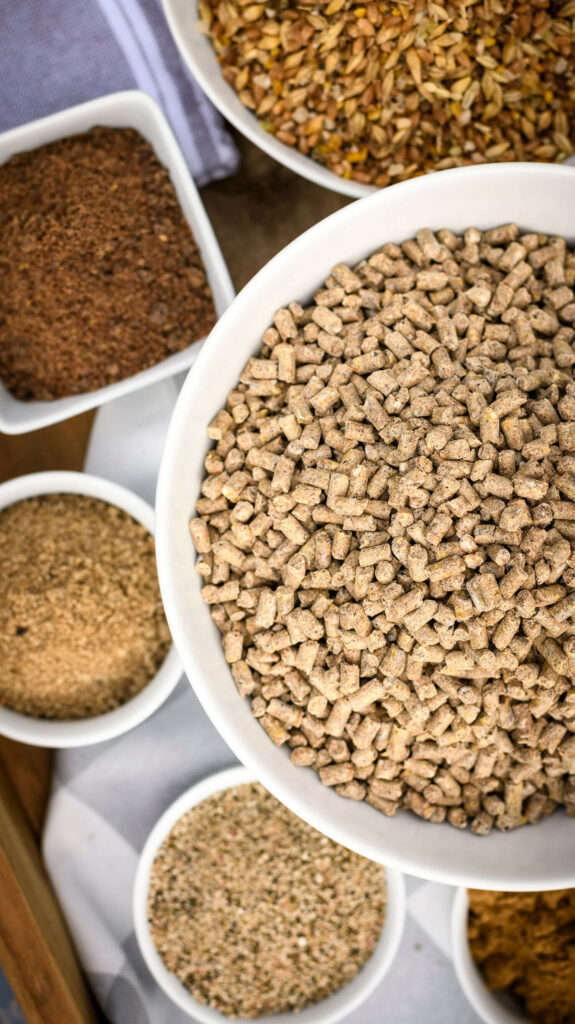If you’re thinking of adding turkeys to your homestead, it all begins with understanding how to raise a turkey poult, a baby turkey less than 8 weeks old. Turkeys can bring a new rhythm and reward to your farm life. They’re naturally curious, surprisingly social, and provide a meaningful connection to the land as you watch them grow from fragile poults into graceful, full-grown birds.
Beyond their charm, turkeys can offer a sustainable source of meat and even help with pest control as they forage. While poults are a little more sensitive than chicks, with the right start; steady warmth, clean water, and a high-protein diet, they can thrive and become a valuable, joyful addition to your homestead.
Once your turkeys are about 4 weeks old, they leave the fragile poult stage behind and begin their journey as juvenile turkeys, often called “growers.” This stage is all about steady growth, building strength, and preparing for life outside the brooder. With the right diet, clean water, and space to explore, your young turkeys can grow into hardy, healthy birds that thrive on your homestead.
What Is a Juvenile Turkey?
A juvenile turkey is simply a young turkey between 4 weeks and adulthood (around 20 weeks). At this stage, they’re feathering out, becoming more active, and developing their strong foraging instincts.
Juveniles are tougher than poults but still benefit from careful observation, a balanced diet, and protection from harsh weather and predators.
Why Add Turkeys to Your Homestead?
Turkeys bring a lot to the table, literally and figuratively. Beyond their sustainable meat production, turkeys are curious, social birds that add character to your flock.
They’re excellent foragers, naturally helping manage pests, and their calm, personable nature makes them a rewarding addition to backyard setups.
Watching them grow from the brooder to the pasture is a unique and fulfilling experience.
Feed Juvenile Turkeys for Steady Growth
Your juvenile turkeys need a diet that keeps pace with their rapid growth and developing strength. Scratch and Peck Organic Turkey Grower Feed is thoughtfully crafted for this stage, with just the right balance of protein, fats, and whole grains to help your birds grow strong, healthy, and “gobble-gobble good.
- 20.5% protein: Supports muscle development, sturdy bones, and vibrant feathers.
- Soy-free, organic, and non-GMO: Made with nutrient-rich whole grains and healthy fats—no fillers or chemical additives—so you know exactly what’s fueling your birds.
- For pets or meat birds: Whether you’re raising heritage breeds or broad-breasted turkeys, this feed delivers quality nutrition for hearty, thriving birds.
- Added benefits: A carefully balanced mix of vitamins and minerals to support immunity, digestion, and long-term health.
- Earth-friendly packaging: Our bags are recyclable and compostable because caring for animals and the planet go hand-in-hand.
Feeding tips:
- Offer free-choice access to grower feed from 4 weeks until around 16 weeks.
- Offer grit
Yes, you can ferment our turkey feed to improve digestibility and boost nutrients!
Provide Clean Water Every Day
Clean, fresh water is essential for digestion and feather development. Choose waterers that are:
- Easy to clean to prevent bacteria buildup.
- Spill-resistant to keep bedding dry.
- Shallow so younger birds can drink safely.
Moving Juvenile Turkeys Outdoors
By 6–8 weeks old, your turkeys are usually ready for their first adventures outside. Start by letting them forage during warm daytime hours while still bringing them inside at night. Once fully feathered and the weather is mild, they can transition to a secure outdoor coop and run.
Outdoor must-haves:
- Predator-proof fencing and a sturdy shelter.
- Access to shaded areas and fresh water.
- A mix of open space and cover for natural behaviors like dust bathing.
Common Health Tips for Juveniles
- Watch for signs of parasites or coccidiosis.
- Keep their coop dry and clean to reduce disease risks.
- Observe their energy levels and appetite daily; these are early indicators of health.
Final Tips for Thriving Turkeys
- Provide balanced, organic feed that matches their growth needs.
- Keep their environment safe, clean, and spacious.
- Encourage natural foraging behaviors by letting them explore grassy areas.
With the right setup and the balanced nutrition of Scratch and Peck Organic Turkey Grower Feed, you can confidently raise healthy, resilient birds that thrive on your homestead.
